In the morning, I often carried a basin of rainwater and slowly wiped my father's face. He had been lying there for nearly half a year, ever since the day he collapsed from a scarecrow's nest in the field, his leg aching and he couldn't stand up. Back then, my father still tried to use a cane to go to the Bung market to sell sweet potato leaves, but then a fever knocked him down, leaving him with a hunched back on a bamboo bed.
My mother is now both mother and father, and the only breadwinner. She always wears the same worn-out Ao Ba Ba, her hands are veined all day long, digging the ground, pulling weeds, and picking rice. Some days there is food, some days there isn’t, meals consist of only a few dried pork rinds, and a bowl of sour fish sauce, but we still find it strangely delicious. Perhaps it is because of all the love from mother, father, and this rickety roof.

ILLUSTRATION: AI
This afternoon, it was drizzling. I sat on the doorstep, fixing my youngest son’s green notebook. He had just started third grade, and his handwriting was still crooked. Every time it rained, I was afraid the book would get wet. Mom was crouching in the yard, washing the sweet cabbage she picked from the garden. Dad lay still, breathing softly.
I looked out at the silvery water and suddenly felt like crying. Many nights lying in the hammock, I kept wondering: what will happen to my life? Will my youngest son get a proper education? Will he have to follow the boat to dig sand like his father?
The youngest boy slowly walked over, holding a wet notebook in his hand. He looked at me, his black eyes sad:
- Brother, do we still have rice tomorrow?
I swallowed hard, my hand gently squeezing its shoulder:
- Yes, there is. Mom said tomorrow she will sell the dried linh fish and buy rice.
- But… what if no one buys?
- Then I go glean rice with mom. I'm grown up now.
He bowed his head, tears rolling down into the mud. I didn't dare wipe them away. I was afraid my hands would be colder than the rain.
That night, the house was dark. The oil lamp cast a weak yellow light on the wall. Mother sat mending the torn mosquito net, while Father was silent as if asleep. I tied up the dried water hyacinth to take to the market tomorrow.
Mom looked up, her voice tired but gentle:
- Hai, tomorrow you can skip school and go with your mother to the field to harvest rice. Your father is weaker today, I'm afraid I won't be able to pay for the rice on time.
I nodded, not daring to look her in the eyes. Under the dim light, I could see the crow’s feet on her dry cheeks, like the marks of time on a person’s life.
***
Early in the morning, I woke up to a thick fog. My youngest son was curled up, the blanket up to his chin. I gently rubbed his back, then carried the basket of rice behind my mother. The dirt road was slippery from the rain last night. My steps were heavy.
Across the canal, the branches of the mangrove trees were in full bloom, a sweet smell wafting in the air. Mother was silent the whole way, only occasionally turning back to say:
- Be careful not to fall, son.
I said yes softly, looking at her back wet with dew.
When I got to the field, I bent down to pick up the remaining rice grains. The rice was cold. I tried not to think about my hungry stomach from yesterday afternoon. My mother was on the other side of the bank, her back bent, her hands digging in the mud to find the grains.
A neighbor walked by, looked at the mother and son and sighed:
- How miserable. Hai is so grown up but still has to glean rice to feed his parents.
Mom looked up, smiled lightly, her voice like the wind blowing through the grass:
- If you are poor, then bear it. As long as the children do not lose their loyalty and affection.
I bit my lip, trying to fill the basket.
At noon, my mother shared with me half a bowl of cold rice with some hard, dry slices. I ate slowly, listening to the chirping of insects outside the field. The hot sun beat down, making my eyes sting.
Mom scooped me another spoonful of rice, her voice hoarse:
- Eat your fill, son. Only with strength can you bear a life of poverty.
I nodded, speechless.
In the afternoon, the wind blew strongly across the canal bank. My mother and I hurriedly carried two baskets of rice home. We crossed a low-lying road, the water was up to our trouser legs. My mother almost slipped, I let go of the basket and helped her up.
My mother's trembling hand clung to my shoulder. She pursed her lips, not daring to look at me:
- Mom is old and so clumsy.
I bowed my head, my voice lost:
- Without mom, my youngest son and I wouldn't have a meal. Don't say that.
She did not answer, just gently squeezed my hand.
When he got home, his father was still lying motionless. The youngest son squatted beside him, fanning himself with a palm leaf fan. When he saw his mother return, he hurried out and whispered:
- Mom… dad said he was thirsty.
My mother put down the rice basket and hurriedly scooped rainwater into a broken ceramic mug. She lifted my father's head and poured him small sips. My father breathed out softly, his voice as dry as the wind:
- Thank you… Thank you.
I stood leaning against the wall, listening to that ordinary sentence as heavy as ten bushels of rice.
***
At night, I sat alone on the riverbank. The water was pitch black, with moonlight shining through the rows of water coconut trees. I remember when I was little, my father often took me on a boat to the floating market. Early in the morning, the boat rocked, the cries of vendors were clear, my father bought me a bowl of hot linh fish noodles.
Now my father can no longer row the boat. He sold the boat. He used the money to buy rice and medicine. All that is left is an empty house, and three or four people clinging to each other in cramped poverty.
I looked up, trying to swallow the lump in my throat. There was only one thought in my mind: I have to leave tomorrow.
The next morning, I said to my mother:
- Mom, let me go to Saigon. I asked Uncle Tu there to let me work as a construction worker.
Mom was stunned, eyes wide open, voice trembling:
- I'm only seventeen years old...
- But I'm fine. I can do it. Here… Mom, it's too much.
She didn't say anything. She just quietly took out the pile of old clothes and put them in a plastic bag:
- I won't stop you. Go… take care of yourself.
Dad lay in the corner of the bed, his eyes filled with tears. He held out his skinny hand to me:
- Go, son. As long as we love each other, anywhere is home.
I walked back, bowed my head and touched my father’s hand. That hand had once led me across the river, pushed the boat through the whirlpool. Now it was as dry as a straw.
That afternoon, the youngest son sat on the porch, watching me stuff things into the bag. He bit his lip and whispered:
- Brother… when will you be back?
- Someday, when I have money, I will fix the house and buy medicine for my father.
- I don't want you to go.
I stopped. My heart ached. But I knew that if I didn't go, poverty would engulf us all.
I bent down and patted its head:
- Brother, I promise… no matter how far away I go, my heart will always be here, with you, with mom, with dad.
She burst into tears, burying her face in my shoulder.
***
In the afternoon, Uncle Tu drove his old car to pick me up. I looked around the empty house for the last time. The bamboo walls were rotten, the thatched roof was tattered. On the bed, Dad lay still, eyes closed as if sleeping. Mom stood leaning against a pillar, her hands clasped tightly together.
I stepped out into the yard and whispered:
- Mom… I'm going.
She looked up, her lips pressed together, then nodded slightly.
Uncle Tu started the engine. The bike sped through the muddy road. I looked back and saw my skinny mother hunched over the door, my youngest son standing next to her, wiping his tears.
The car drove away, the riverbank faded away. The afternoon wind blew across my face, salty with sweat and tears. I closed my eyes and said to myself:
I am poor, but don't let your heart be small.
***
The bus drove for almost a whole morning before arriving at Mien Tay bus station. I got off the bus, clutching my bag of clothes, looking at the bustling crowd. The smell of dust and exhaust fumes wafted into my face, a far cry from the smell of mud and straw from my hometown.
Uncle Tu led me to a cramped boarding house. The row of rooms was full of provincial laborers, all tired after a day of carrying loads and pouring concrete. He told me to stay here temporarily and he would take me to find a job tomorrow.
The first night away from home, I lay on a torn mat, listening to the buzzing of mosquitoes. In my mind, I kept seeing my father lying quietly on the bed, my mother bent over to mend the mosquito net, and my youngest son sitting huddled up copying his homework. I put my hand to my chest, touching the small piece of paper tucked in my shirt - the letter my mother had given me when I got into the car: "Take care of yourself when you leave. I love you."
I clenched the paper, trying to hold back a sob.
The next morning, I went to the construction site with Uncle Tu. The work was nothing unusual: carrying bricks, mixing mortar, shoveling sand. But the hot Saigon sun was scorching. Sweat ran down my back and my eyes stung.
At noon, I sat leaning against a pile of bricks, opening a box of cold pork chop rice. For a moment, I wished I was sitting in the kitchen of my hometown, eating a bowl of rice with fish sauce with my mother and youngest son. Here, the pork chop rice was bland.
A gray-haired mason patted me on the shoulder:
- Miss home son?
Yes… I remember.
- Keep going. As long as you remember me every day, your heart will still be warm.
I bowed my head, listening to the quiet words that were like a mooring post to my heart.
That evening, I stopped by the post office near my boarding house and sent home 150,000 - my first salary. The clerk asked:
- Can I have a message?
I nodded slightly, held the pen, and wrote each word carefully: "Mom, I'm fine. Use this money to buy medicine for Dad. I love you and our family very much."
My hands were shaking as I pasted the ballots. But for the first time in my life, I felt big enough to help my mother.
***
At night, I sat on the steps of my boarding house. Above my head, a thin crescent moon hung. I missed the river wharf of my hometown, the clusters of white-flowered mangroves, the sound of my father calling for dinner, and the words my mother whispered in my ear: As long as we love each other, a meal of fish sauce will be delicious.
I looked up and took a deep breath. In the middle of the vast Saigon, my heart still yearned for the small Cai Con creek - where there was a rickety roof, but the love never wavered.
The fifth Living Well Writing Contest was held to encourage people to write about noble actions that have helped individuals or communities. This year, the contest focused on praising individuals or groups that have performed acts of kindness, bringing hope to those in difficult circumstances.
The highlight is the new environmental award category, honoring works that inspire and encourage action for a green, clean living environment. Through this, the Organizing Committee hopes to raise public awareness in protecting the planet for future generations.
The contest has diverse categories and prize structure, including:
Article categories: Journalism, reportage, notes or short stories, no more than 1,600 words for articles and 2,500 words for short stories.
Articles, reports, notes:
- 1 first prize: 30,000,000 VND
- 2 second prizes: 15,000,000 VND
- 3 third prizes: 10,000,000 VND
- 5 consolation prizes: 3,000,000 VND
Short story:
- 1 first prize: 30,000,000 VND
- 1 second prize: 20,000,000 VND
- 2 third prizes: 10,000,000 VND
- 4 consolation prizes: 5,000,000 VND
Photo category: Submit a photo series of at least 5 photos related to volunteer activities or environmental protection, along with the name of the photo series and a short description.
- 1 first prize: 10,000,000 VND
- 1 second prize: 5,000,000 VND
- 1 third prize: 3,000,000 VND
- 5 consolation prizes: 2,000,000 VND
Most Popular Prize: 5,000,000 VND
Prize for Excellent Essay on Environmental Topic: 5,000,000 VND
Honored Character Award: 30,000,000 VND
The deadline for submissions is October 16, 2025. The works will be evaluated through the preliminary and final rounds with the participation of a jury of famous names. The organizing committee will announce the list of winners on the "Beautiful Life" page. See detailed rules at thanhnien.vn .
Organizing Committee of the Beautiful Living Contest

Source: https://thanhnien.vn/chieu-ben-song-truyen-ngan-du-thi-cua-nguyen-tuan-khang-185250912113758608.htm





![[Photo] Prime Minister Pham Minh Chinh chairs the first meeting of the Central Steering Committee on housing policy and real estate market](https://vphoto.vietnam.vn/thumb/1200x675/vietnam/resource/IMAGE/2025/9/22/c0f42b88c6284975b4bcfcf5b17656e7)


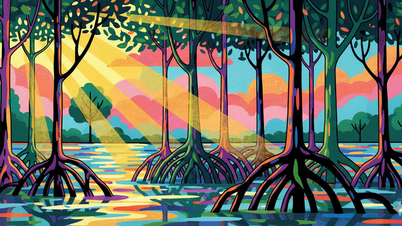
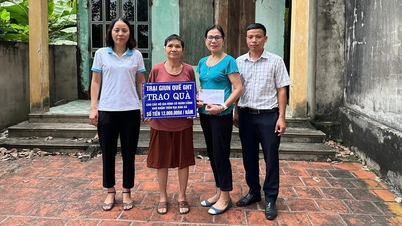






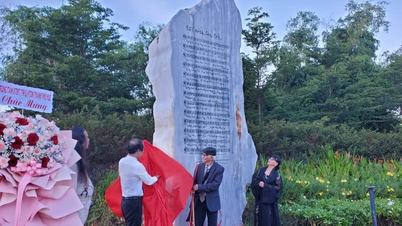



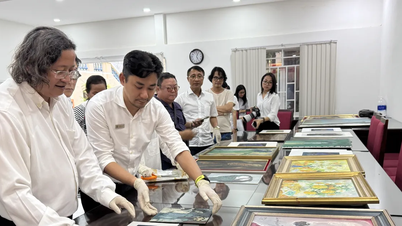













![[Photo] General Secretary To Lam presents the First Class Labor Medal to the Vietnam National Energy and Industry Group](https://vphoto.vietnam.vn/thumb/1200x675/vietnam/resource/IMAGE/2025/9/21/0ad2d50e1c274a55a3736500c5f262e5)



























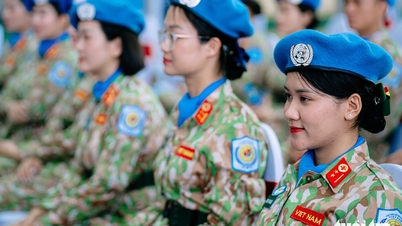








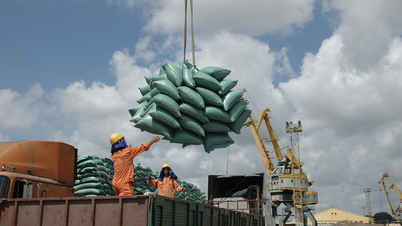











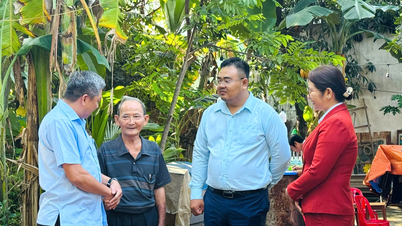










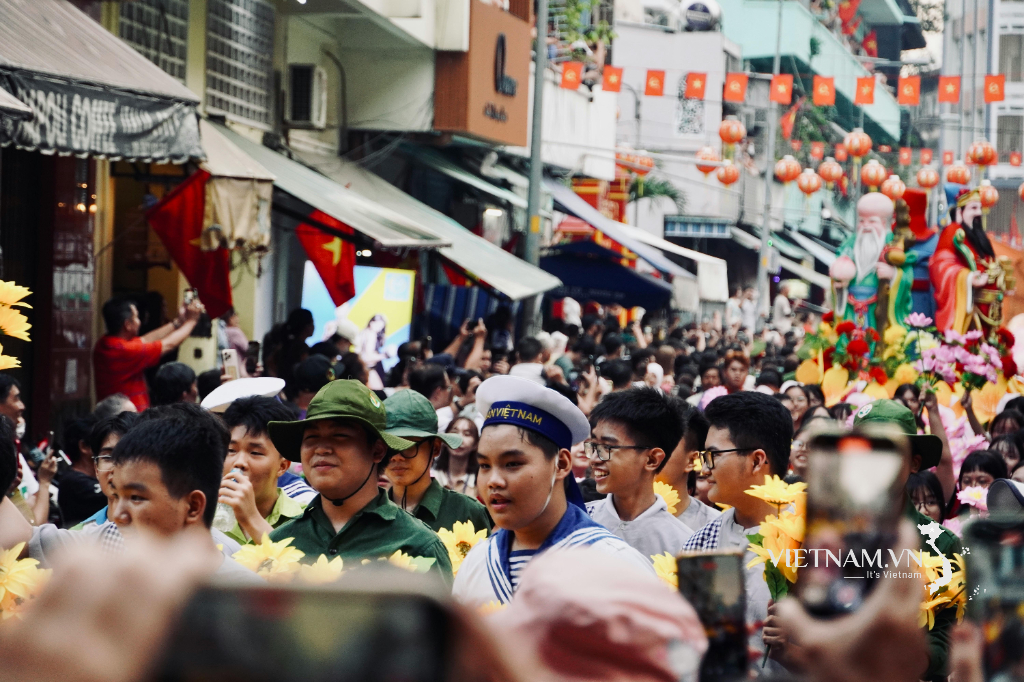


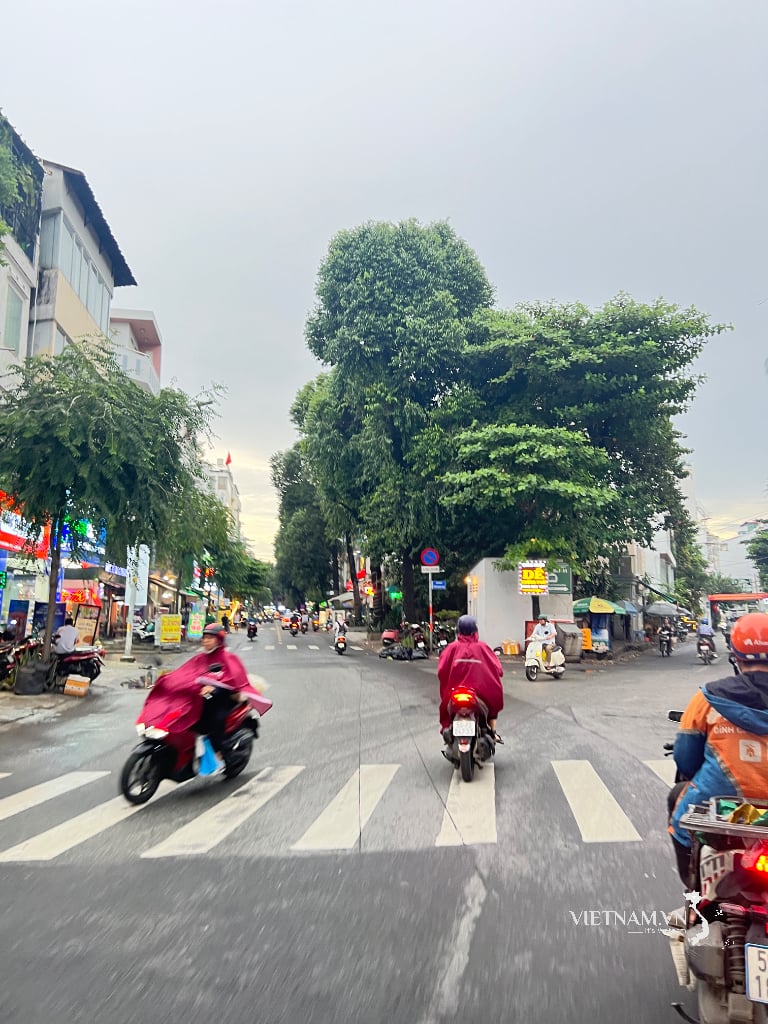
Comment (0)